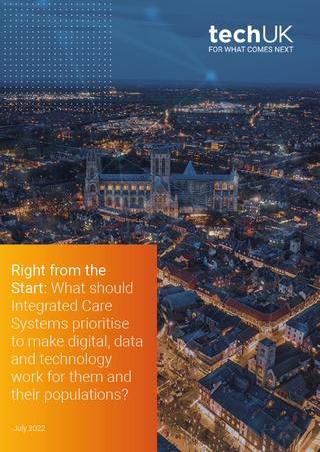NCR: How the Metaverse could offer UK retailers opportunities for growth
This past decade – and especially the last two years – has been challenging for retailers in the physical world, including those on the UK’s high streets.
Consumers no longer rely on places called ‘high streets’, depriving many brick-and-mortar brands from what was traditionally their primary sales channel. Although opening online channels enabled a larger market, the landscape is amazingly fierce, particularly with the likes of Amazon offering just about anything a shopper could want.
For certain verticals, such as supermarkets and food retailers, shifting from a physical to an online place has been challenging, with intermediaries enforcing competition, diluting focus, and competing for consumer and market awareness.
Then came the need for brands to bridge the divide between these physical and online places, with many introducing curbside pickup, touchless order technology, self-serve solutions, and more. Sure, these have been great ways to deliver what consumers want and have opened new avenues of selling, but they’re not free.
Well, buckle up and gear up for an exciting ride, because another change is coming – the Metaverse – and it’s gaining momentum. But rather than be wary of it, UK retailers can look to the Metaverse as a way to reset, revamp and reshape the retail game in their favour by creating innovative and “other worldly” customer experiences in a new and unexplored place.
Why it’s gaining speed
In his 1992 novel Snow Crash, Neal Stephenson coined the term Metaverse as a computer-generated universe. Fast forward 30 years. Today’s Metaverse is virtual place that enables users to duplicate items existing in the physical world. Its popularity, while growing, really took off in 2021 when Facebook changed its name to Meta, with CEO Mark Zuckerberg receiving plenty of press surrounding company efforts to build the Metaverse.
For UK retailers, the possibilities the Metaverse brings are endless.
For example, through multiplayer game creation platform Roblox, Gucci Garden visitors can explore the virtual place and purchase Gucci goods for some big bucks. A digital version of the company’s Dionysys bag sold there for about $4,115.
Teen fashion retailer Forever21 uses the same platform, allowing players to build and customize their own stores, select locations, perform real-life jobs like stocking inventory or helping customers and so on. This enables the brand to reimagine customer experience and foster relationships with young fashionistas and gamers.
Ways brands can capitalise on it
As the Metaverse develops further, retailers should keep an eye out and consider it a blank canvas for innovation as it could bring with it new opportunities for building brands, engaging customers, and growing sales.
Consider, for instance:
Bridging online and virtual currency realms. So far, virtual worlds have not enabled simple methods for converting in-game currency into physical world money. However, this could enable retailers to produce their own currency that works in both places.
Offering transferable virtual goods. The Metaverse will, at least at first, be fragmented into different virtual worlds. But brands could sell their virtual goods in multiple worlds, allowing shoppers to fashion a consistent style across each virtual place.
Turning shopping into a game. Think young and fun – as in the Forever21 example. Remember, too, how Pokémon GO took the entire gamifying world by storm. Retailers could create games immersing players into everything about their brand – their store environment, products and more and could even partner with other brands.
The sky’s the limit
UK retailers know how quickly the landscape changes. It always will. As the Metaverse matures as a ‘place’ in its own right, opportunities for retailers will likely develop, too.
Consider how the industry can grab hold of this trend and expand their brand, because if the Metaverse comes to fruition, it promises plenty of real-world potential for retailers and their customers.
The techUK podcast: Innovation in place-based care
In this episode we explore the concept of ‘place’ in care, the principles behind it, the impact of Covid-19 on care delivery, prospects for innovation following the introduction of Integrated Care Systems, examples of industry best practice, and where listeners can go to learn more about ‘place’ and innovation in care.
We were joined by Helena Zaum (Social Care Lead at Microsoft and Chair of techUK’s Social Care Working Group), Scott Cain (Associate at the Connected Places Catapult) and Hannah Groombridge (Healthcare Engagement Manager at Person Centred Software).
This discussion forms part of techUK’s Digital Place Week 2022 activity and features on our recently-launched Social Care Innovation Hub.

Read techUK's latest flagship report, released on Thursday's 'Health and Wellbeing' day:
Right from the start: What should Integrated Care Systems prioritise to make digital, data and technology work for them and their populations?


